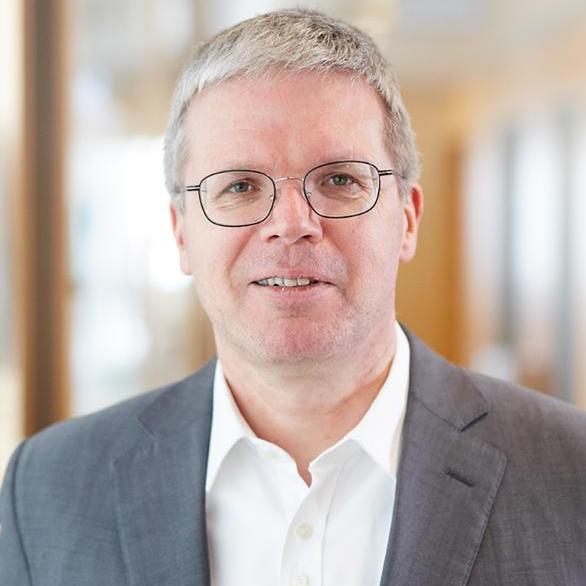
This article series is sponsored by Philip Morris International.
For a company like Philip Morris International to have a conversation about sustainability may seem almost inappropriate to some people. How can a tobacco company—which sells products that are harmful to the health of its consumers—talk in a credible way about sustainability?
It’s a fair question.
Sustainability needs to start with taking a hard look at the impact a company’s products have on consumers and society, and it’s no secret that cigarettes are harmful. The answer is obvious: If PMI wants to have the greatest positive impact, we have to evolve our business model.
So that’s what we have been doing since 2016, transforming our business from cigarettes to smoke-free alternatives.
Deciding to phase out the product that PMI was built on—while delivering on expectations of our employees, shareholders and the 150 million consumers of our brands—is a drastic move. Addressing the health effects of our product is a pivotal contribution to sustainability. While our sustainability efforts contribute to several United Nations Sustainable Development Goals, we have identified SDG Goal No. 3, which is to ensure healthy lives and promote well-being, as the goal for which PMI can have the greatest positive influence as we transform our business toward a smoke-free future.
“Unsmoking” the world
The best way to avoid the harm of smoking, obviously, is for smokers to quit and for others to never pick up their first cigarette. But with 1.1 billion people around the globe who do smoke, it was key for PMI to come up with better alternatives than continuing to smoke.
While nicotine is addictive and not without risk, experts agree that the primary cause of smoking-related diseases is the smoke generated by burning tobacco. Through more than a decade of extensive research—by over 400 scientists, engineers and technicians at our two research facilities—we have been developing smoke-free products that are less harmful than cigarettes.
Our goal is to switch every smoker who would otherwise keep using cigarettes to smoke-free products, and we continue to shift company resources toward achieving that ambition. Last year, smoke-free products made up roughly 5 percent of our shipments, but generated nearly 14 percent of our revenue. Moreover, already 60 percent of our global commercial expenditure and 92 percent of our investment in research and development were dedicated to smoke-free products.
And we’re on our way toward meeting our goal: Since the debut of our main smoke-free product, IQOS, in 2014, more than 7.3 million people have stopped smoking our cigarettes and switched to PMI’s heated tobacco products. It is our ambition that by 2025, at least 40 million PMI cigarette smokers will have switched to smoke-free products. Achieving this would accelerate the decline of smoking among our consumers more than three times faster compared to targets set by the World Health Organization (WHO).
Taking action
PMI is the only tobacco company to focus its efforts on replacing cigarettes with better alternatives as quickly as possible, but our sustainability ambition reaches far beyond changing our product. It extends to the way we operate and address our social and environmental sustainability challenges. And as we are making progress on our transformation journey, we are applying our sustainability approach to areas that are new to our business, such as electronics.
This includes, for instance, improving labor practices in our electronics supply chain and developing circular economy schemes to recycle our smoke-free devices. As smoke-free products require less tobacco, we are also helping farmers diversify their crops and reduce their dependence on revenues from tobacco growing.
Managing PMI’s social impact within our operations and beyond is a key pillar of our sustainability strategy. We took our Agricultural Labor Practices program, already considered industry-leading, to the next level in 2018 with a step-change approach, with the ambition to have zero child labor within our tobacco supply chain by 2025. We reinforced our human rights due diligence work and also increased the worldwide representation of women in management roles.
We are also committed to reducing our environmental footprint throughout our value chain. We are improving water stewardship and greening the energy consumption in our operations and are focusing on most relevant areas of our environmental footprint outside of our factories. This includes addressing greenhouse gas emissions, deforestation, and biodiversity in tobacco growing and curing, as well as tackling consumer waste and littering. We support the Paris Climate Agreement and have set ambitious science-based targets to reduce our carbon emissions. For the fifth year in a row, PMI achieved CDP’s Climate A-list for its comprehensive action to reduce greenhouse gas emissions and mitigate climate change and for transparency in its reporting practices.
Our efforts and the progress we are making toward the transformation, environment and social targets we have set are outlined in our newly released 2018 Sustainability Report, the fourth such document PMI has produced.
Our ambition is to become a sustainability leader, within the tobacco industry and beyond, and the core of our sustainability strategy is to unsmoke the world—as soon as possible and as sustainably as possible.
Image credit: Steven Wright via Unsplash

Huub Savelkouls is Chief Sustainability Officer for Philip Morris International.














